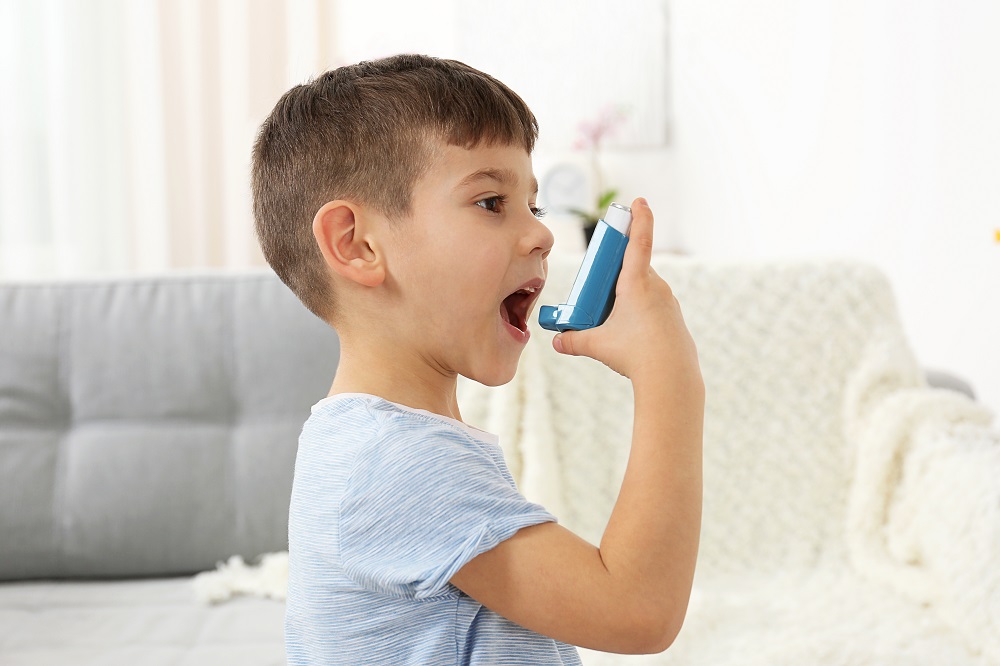People of all ages are diagnosed with Asthma every year. However, if you are parenting a child with asthma, you will have special concerns. To visit an asthma specialist in New York, get in touch with Dr. Shukla today for a consultation.
Diagnosing Asthma in Children
Most children who have asthma present symptoms before they are five years old. The major giveaway is wheezing – although this is also what makes asthma more difficult to diagnose in young children. This is because very young children often wheeze for other reasons, for example:
If they have a cold or respiratory infection
- A small child’s already tiny airways can become inflamed by an illness
- Illness-related wheezing may stop occurring when the child gets older and their airways grow along with the rest of their body
Signals that a young child’s wheezing is asthma-related are:
- One or both of their parents have asthma
- The child has signs of allergies, including eczema
- The child wheezes even when they don’t have a cold or other infection
Share all this information with your doctor, who will ultimately make the diagnosis. Lung function tests, which often make the definitive diagnosis in adults, are too difficult to perform on children. So, your doctor may prescribe a 4-6-week trial of asthma medicine to check and see if they make a difference in your child’s symptoms.
Teach Your Child Self-Management Skills
- Kids with asthma should
- Know where their inhaler is kept and ensure it is with them—even if that requires some prompting
- Know their asthma symptoms
- Know when to use their inhaler
- Know how to use their inhaler, even if they need help
- Communicate when they need medication, if possible
- Know what things might make their asthma worse (asthma triggers)
- Speak up if they notice a situation may trigger their asthma (chalkboard dust, classroom pets, cleaning supplies being used, plants inside the school), so that an adult can make modifications
- Understand how to manage asthma triggers (i.e. using their inhaler before gym class, wearing a scarf in winter)
- Understand that sometimes activities may have to be limited because of their asthma, and how to communicate this—that they can do anything, but maybe not all the time.
- Ask questions if they are uncertain about something
Parenting Teenagers with Asthma
Children who have learned to manage their asthma symptoms well may begin to experience more difficulty with their symptoms as they enter the teenage years. This can be because of hormonal changes, attitude, behavioral, or lifestyle changes. Some things that may cause problems for teenagers are:
Wanting to be “cool” or fit in
- Teenagers can be very self-conscious about any minor difference between themselves and their peers. Because of this, they may resist using an inhaler around other people when they should. They might also not speak up when they notice asthma triggers in their environment so as not to draw attention to themselves. Their biggest fear of all may be having an asthma attack in public. Stay on top of this by having open and honest conversations about this with your teen, and their doctor, so they know the communication lines are open.
Smoking and secondhand smoke
- The teen years are when many people pick up the nicotine habit. If your teen starts smoking, or even if they spend time around people who smoke, they will probably begin having trouble with their asthma symptoms. The American Lung Association ‘Not on Tobacco’ program helps 14 to 19-year-old smokers quit. They offer free phone counseling through their helpline.
Playing Sports
- Teens are often involved in many extracurricular activities such as sports teams. There is no reason teens with asthma should not be able to participate in sports. Just make sure they have an action plan and that they, their school, and their coach is aware of it.
Asthma Specialist in New York
If you think you might have asthma or your symptoms are getting worse, take Dr. Shukla’s online Asthma Control Test to find out if you should seek treatment. Asthma symptoms can increase over time, so you may need to see Dr. Shukla even if you have seen a doctor for asthma before. Dr. Shukla takes pride in being known as the top asthma specialist in New York. Call (917) 924-6383to schedule an appointment today.

